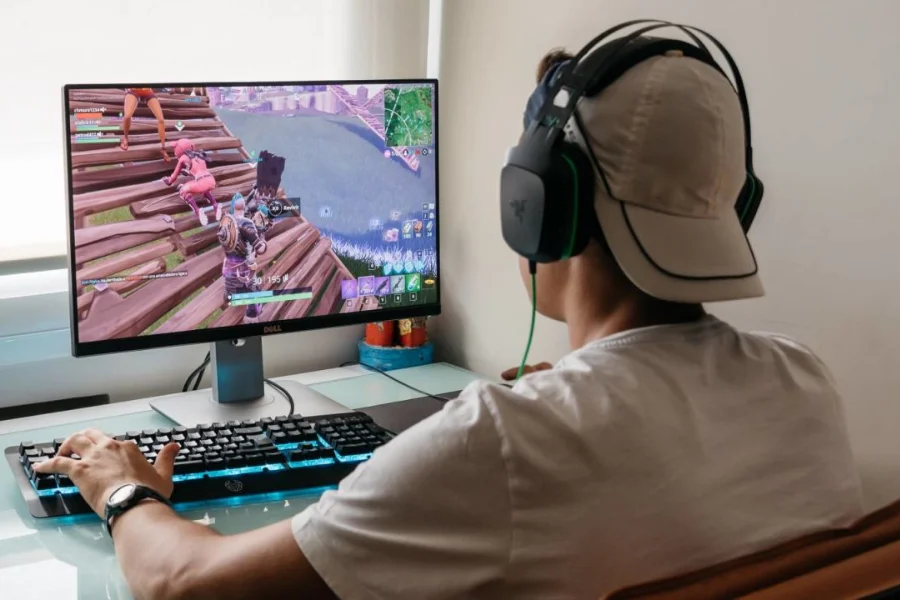Why Gaming Is More Than Just a Pastime: Exploring Its Benefits for Mental Health

Gaming | Mykaba
Gaming has evolved from a simple pastime to a multi-billion-dollar industry that has taken the world by storm. For many, gaming is more than just a way to pass the time; it’s a way of life. While some may view it as a mindless activity that promotes violence and addiction, studies have shown that gaming can have a positive impact on mental health. In this article, we’ll explore the ways in which gaming can improve your mental health and well-being.
Benefits of Gaming for Mental Health
Gaming and Stress Relief
One of the most significant benefits of gaming is its ability to relieve stress. Gaming provides an escape from the real world and allows you to immerse yourself in a fantasy world where you can forget about your worries. Research has shown that playing video games can reduce cortisol, the hormone associated with stress. In a study conducted by the University of Central Florida, participants who played video games experienced a significant decrease in cortisol levels.
Additionally, gaming has been shown to have a calming effect on the mind. In a study published in the Journal of Cyberpsychology, Behavior, and Social Networking, participants who played a puzzle game reported feeling less anxious and tense afterward. The study concludes that gaming can be an effective stress-reducing activity.
Gaming as a Form of Therapy
Gaming is also being used as a form of therapy for individuals struggling with mental health issues. In recent years, video games have been developed specifically to help individuals struggling with depression, anxiety, and PTSD. These games aim to provide a safe and controlled environment for individuals to process their emotions and develop coping mechanisms.
One example of a therapeutic game is “SPARX,” a video game designed to help teenagers struggling with depression. The game uses cognitive-behavioral therapy techniques to teach players how to manage their negative thoughts and emotions. In a study conducted by the University of Auckland, participants who played “SPARX” reported a significant reduction in depression symptoms.
Cognitive Benefits of Gaming
Gaming has also been shown to have cognitive benefits. Playing video games requires quick thinking, problem-solving skills, and the ability to think critically. These skills can translate to real-life situations and improve cognitive function.
In a study conducted by the Max Planck Institute for Human Development, participants who played a strategy game showed an increase in gray matter in the hippocampus, a part of the brain associated with spatial navigation and memory. The study suggests that playing video games can have a positive impact on brain function.
Social Benefits of Gaming
Gaming can also have social benefits. With the rise of online gaming, individuals can connect with other players from around the world. Online gaming communities provide a sense of belonging and can help individuals develop social skills.
In a study conducted by the University of California, Irvine, researchers found that online gaming communities provide a safe space for individuals to develop social skills. The study concludes that gaming can be an effective tool for individuals struggling with social anxiety.
Gaming Addiction and Its Effects on Mental Health
While gaming can have many benefits for mental health, it’s essential to recognize the potential negative effects of gaming addiction. Gaming addiction can lead to social isolation, decreased academic or occupational performance, and other mental health issues.
In a study conducted by the University of Oxford, researchers found that excessive gaming can lead to depression, anxiety, and other mental health issues. It’s important to recognize the signs of gaming addiction and seek help if necessary.
How to Use Gaming for Mental Health Purposes
To use gaming for mental health purposes, it’s essential to choose games that promote positive mental health. Games that require problem-solving skills, critical thinking, and social interaction can have the most significant impact on mental health.
Additionally, it’s important to set boundaries when gaming. It can be easy to get lost in the world of gaming and lose track of time. Setting a time limit and balancing gaming with other activities can help prevent gaming addiction and promote positive mental health.
Recommended Games for Mental Health Benefits
There are many games available that promote positive mental health. Here are a few recommendations:
1. “Journey”
“Journey” is a game that encourages players to explore their emotions and develop a sense of empathy. The game has been praised for its stunning visuals and meditative gameplay.
2. “Tetris”
“Tetris” is a classic puzzle game that requires problem-solving skills and critical thinking. The game has been shown to reduce anxiety and promote relaxation.
3. “Minecraft”
“Minecraft” is a sandbox-style game that encourages creativity and social interaction. The game has been used in classrooms to promote teamwork and problem-solving skills.
Conclusion
Gaming is more than just a pastime; it’s a way of life for many individuals. While some may view it as a mindless activity, studies have shown that gaming can have a positive impact on mental health. From reducing stress and anxiety to improving cognitive function and social skills, gaming offers a wide range of benefits that are worth exploring. By choosing games that promote positive mental health and setting boundaries when gaming, individuals can use gaming as a tool to improve their mental health and well-being.









